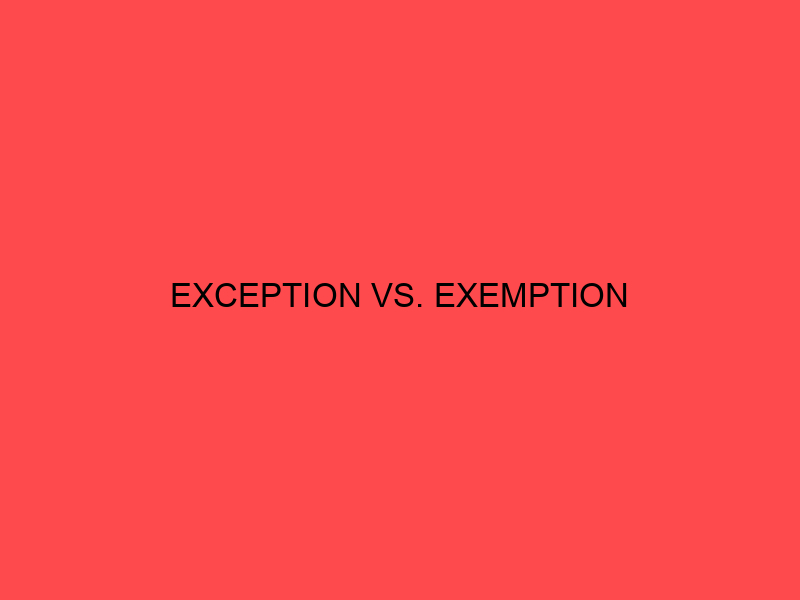-
Exception (noun)
The act of excepting or excluding; exclusion; restriction by taking out something which would otherwise be included, as in a class, statement, rule.
-
Exception (noun)
That which is excepted or taken out from others; a person, thing, or case, specified as distinct, or not included
“That rule is usually true, but there are a few exceptions.”
-
Exception (noun)
An objection, on legal grounds; also, as in conveyancing, a clause by which the grantor excepts or reserves something before the right is transferred.
-
Exception (noun)
An objection; cavil; dissent; disapprobation; offense; cause of offense; — usually followed by to or against.
-
Exception (noun)
An interruption in normal processing, typically caused by an error condition, that can be handled by another part of the program.
-
Exemption (noun)
An act of exempting.
-
Exemption (noun)
The state of being exempt; immunity.
-
Exemption (noun)
A deduction from the normal amount of taxes.
-
Exemption (noun)
Freedom from a defect or weakness.
-
Exception (noun)
a person or thing that is excluded from a general statement or does not follow a rule
“the administrator made an exception in the Colonel’s case and waived the normal visiting hours”
“he always plays top tunes, and tonight was no exception”
-
Exemption (noun)
the action of freeing or state of being free from an obligation or liability imposed on others
“vehicles that may qualify for exemption from tax”

